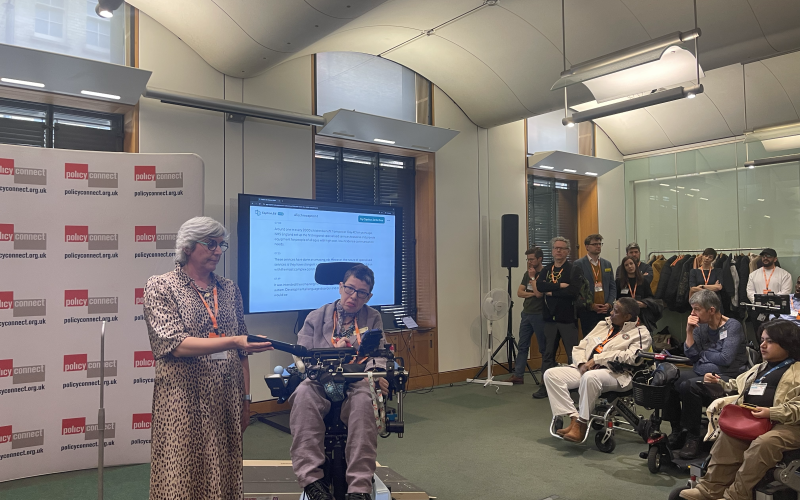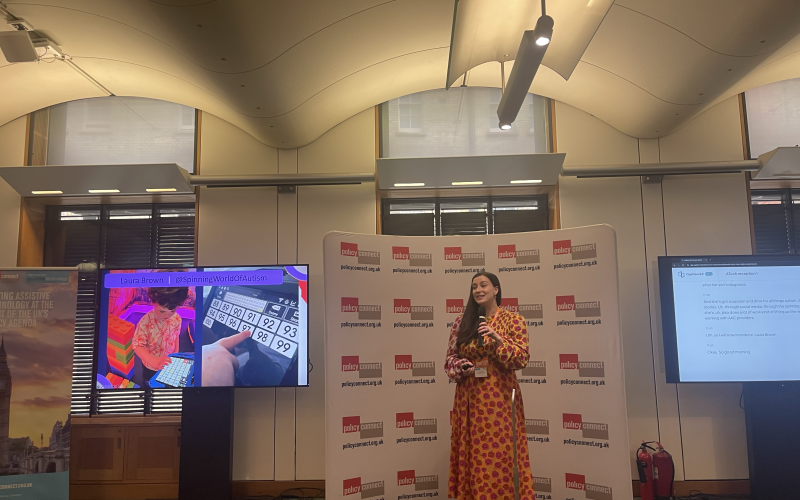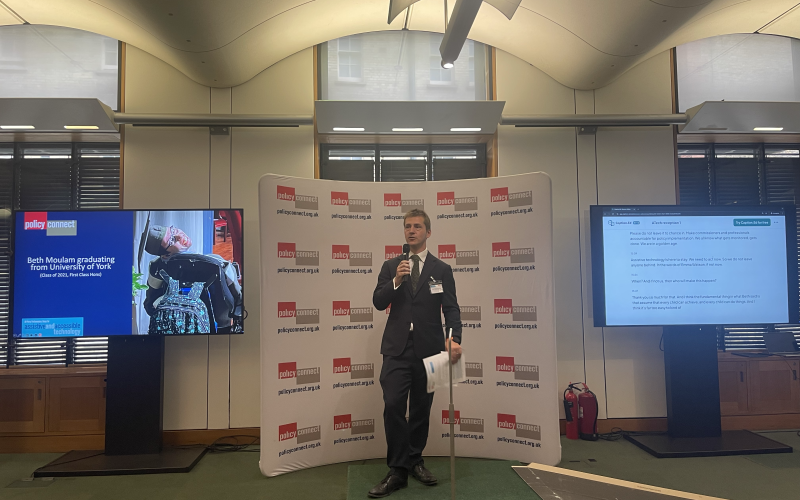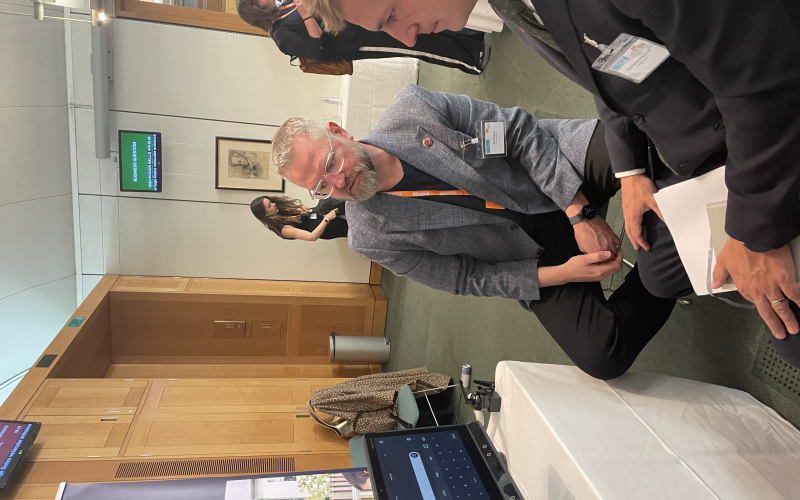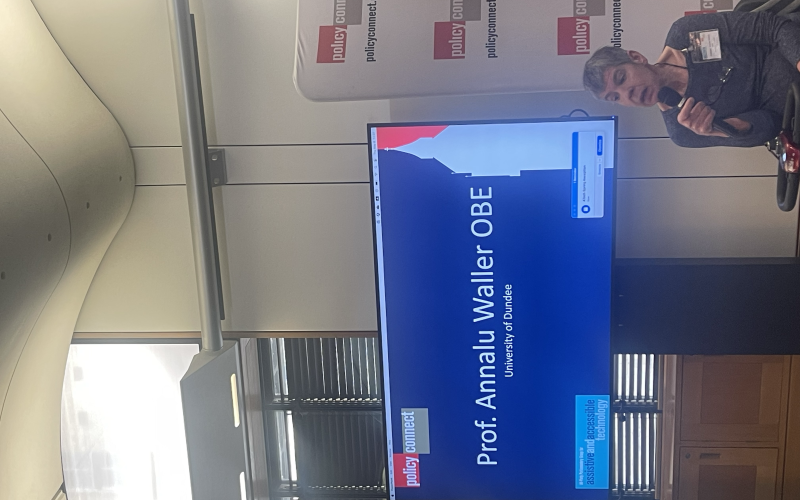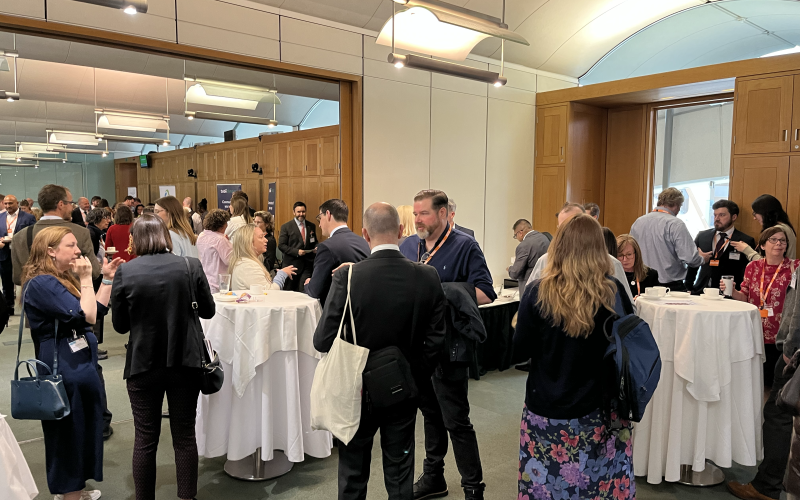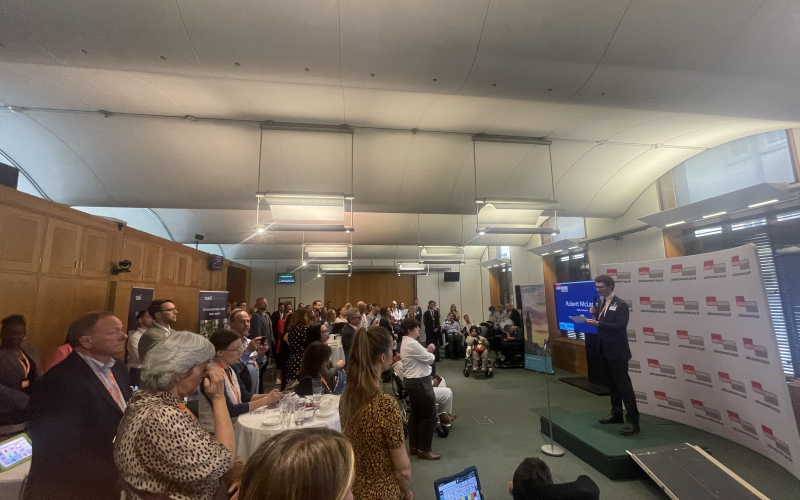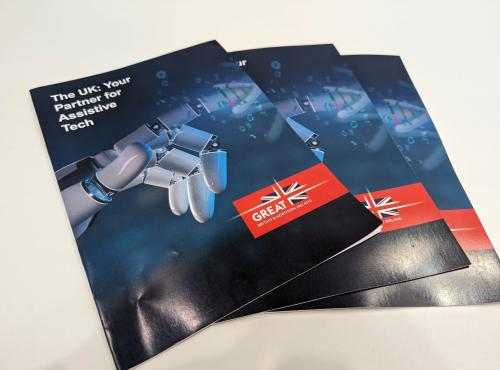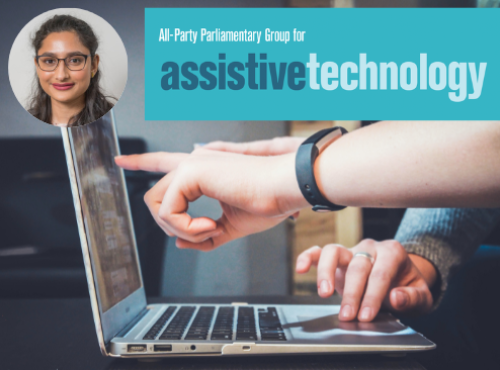Assistive and Accessible Technology Spring Reception
Policy Connect were delighted to host the ATech Spring Reception in Parliament on 8 May, on behalf of the All-Party Parliamentary Group for Assistive and Accessible Technology (APPGAT).
The reception brought together parliamentarians, assistive technology experts, educators, and advocates from across the SEND and ATech sectors to explore the transformative role of technology in improving outcomes for learners with special educational needs and disabilities, particularly those with complex communication needs.
Josh Fenton-Glynn MP, Chair of the APPGAT, opened the event by underscoring the vital role assistive technology plays in supporting learners with special educational needs – including from his own lived experience – and urged fellow MPs to take an active role in addressing the national SEND crisis.
A series of compelling speeches followed, each offering a unique perspective on the power of assistive and accessible technology to change lives.
Beth Moulam PLY, representing Communication Matters (ISAAC UK), spoke about the potential of Augmentative and Alternative Communication (AAC) to help young people fulfil their potential. She focused on three key priorities:
- Building on the strengths of regional specialist services.
- Equipping professionals with the training needed to work effectively with ATech.
- Holding high expectations for every child - and always assuming competence.
Laura Brown, founder of Spinning World of Autism, shared a moving account of her non-speaking autistic son’s experiences. Her story challenged misconceptions surrounding AAC and SEND, and underscored the pressing need for greater awareness and training among education and health professionals. She advocated passionately for the early introduction of AAC to support communication from the start.
Following a period of networking, Professor Annalu Waller OBE of the University of Dundee discussed the widespread need for AAC and the lack of a coordinated voice to champion its use. Drawing on her team’s work commissioned by the Department for Education, she stressed the importance of awareness, professional training, and understanding the everyday relevance of AAC for many learners.
Robert McLaren, Director of Policy at Policy Connect, concluded the evening by outlining APPGAT’s policy work and broader ambitions for the ATech sector. He identified four priority areas where assistive technology can have profound impact:
- Education
- Employment
- Independent living and social care
- Cross-cutting policy areas such as digital inclusion
He closed with a powerful call to action: just as cybersecurity has become a fundamental part of our digital infrastructure, so too should assistive technology become a universal standard - with a dedicated centre to connect government, industry, and users.
Throughout the morning, guests engaged in meaningful conversations about how stakeholders can work together to ensure that no learner is left behind, and that assistive technology is fully harnessed to unlock potential, promote inclusion, and transform lives.
Thank you to all who attended, and to our excellent speakers:
- Josh Fenton-Glynn MP, Chair of APPGAT
- Beth Moulam PLY, Communication Matters (ISAAC UK)
- Laura Brown, Spinning World of Autism
- Professor Annalu Waller OBE, University of Dundee
- Robert McLaren, Director of Policy, Policy Connect
For more information about the All-Party Parliamentary Group for Assistive and Accessible Technology, or to get involved, please contact: robert.mclaren [at] policyconnect.org.uk.
